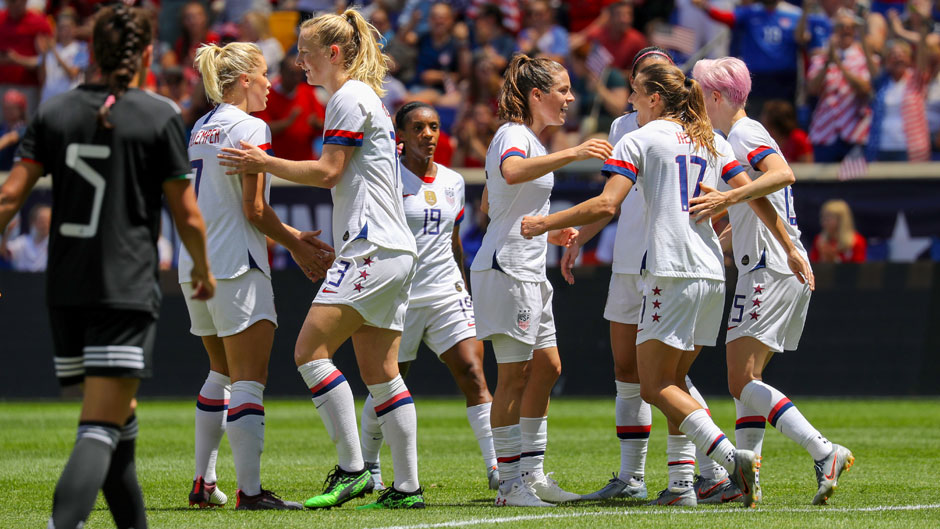Their achievements are unquestionable: three World Cup titles, including the most recent one in 2015; four Olympic gold medals; and a FIFA No. 1 ranking for 10 of the last 11 years.
Yet, as the U.S. women’s national soccer team continues to defend its World Cup title in France—the squad defeated Spain 2-1 on Monday in the round of 16—its players are waging a bigger battle off the field.
Three months ago, 28 of the team’s members filed a gender discrimination lawsuit against the United States Soccer Federation, arguing that the USSF discriminates against women by paying them less than members of the men’s team despite the fact that the women have achieved much greater success on the field.
“The women’s contention is quite simple: They are paid much less than their male counterparts for the same work, namely playing competitive soccer,” said Caroline Mala Corbin, a professor of law and Dean’s Distinguished Scholar at the University of Miami School of Law, explaining that the women’s team is suing the USSF under two federal statutes: the Equal Pay Act, which requires equal pay for equal work, and Title VII of the Civil Rights Act, which bans discrimination on the basis of sex in employment.
“As one example,” Corbin continued, “their complaint points out that, assuming both teams won 20 games, ‘female WNT players would earn a maximum of $99,000 or $4,950 per game, while similarly situated male MNT players would earn an average of $263,320 or $13,166 per game.’ In other words, the men would earn more than twice as much as the women.”
Twice as much for results that pale in comparison to the women’s squad, to be precise. As Corbin points out, the men’s national team has never won a World Cup and didn’t even qualify for the 2018 competition. And even in the pocketbook, the women’s team has outpaced the men’s squad, generating slightly more revenue from ticket sales—$50.8 million compared to $49.9 million—since the U.S. women’s team last won the Cup four years ago.
But their fight for equal pay, according to Louise K. Davidson-Schmich, a professor of political science in the University of Miami College of Arts and Sciences, actually transcends soccer and all of women’s sports, helping to lay bare and further expose the discriminatory practice of unequal pay for women workers across the country.
Citing data from the Institute for Women’s Policy Research, she noted that in 2018 women in the U.S. earned 81.1 percent of what men earned. The gap was even larger for women of color compared to white men. For example, Hispanic women’s median weekly earnings last year were 61.6 percent of white men’s median weekly earnings.
“Some of this gap is due to women working fewer hours—for example, combining career and family care responsibilities—or interrupting careers for child bearing, or working in less well-compensated fields than men,” said Davidson-Schmich, whose research interests include gender and politics. “However, even when scholars control for these variables, a gender pay gap remains. So the fact that the women’s soccer team is doing the same work as the men’s team—representing the United States in the world’s foremost tournament—and still getting paid less is typical of the way in which women are compensated in the U.S. And it is particularly galling in this case because it is the men’s team that has interrupted its career, failing to qualify for top tournaments and working fewer hours but still receiving higher wages.”
Sarah Barnes, head coach of the UM women’s soccer team, agrees that the gender wage gap is not solely a problem limited to her sport. “Let’s face it, women are behind in the pay scale in every facet of work life,” she said. “Studies have shown us that women do not get paid the same as men in the same field. It’s not just a women’s soccer problem; it’s a women’s problem in America.”
Playing and, more importantly, excelling in an international sporting event like the World Cup should help raise awareness to their cause, said Davidson-Schmich. “Many female fans will likely identify with the team’s experience and support their calls for just compensation,” she said.
Rigorous analysis of the way women are valued in the workplace is needed to close the gender wage gap, added Barnes. “Progress never comes easy,” she said. “We have to continue to push and fight for it.”

